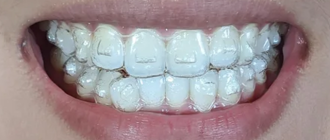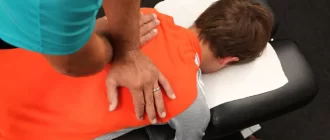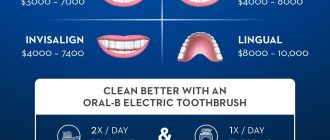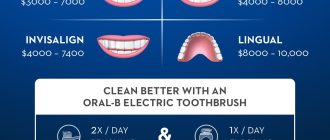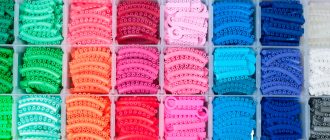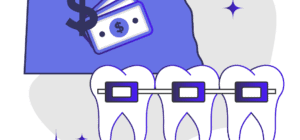A key aspect of having a beautiful smile is white teeth. The cost of teeth bleaching depends on the type of treatment which is used. There are three main ways of having teeth whitened including a professional in-office bleach, a take home dentist created bleaching system and do-it-yourself over the counter whitening kits. You can expect to pay anywhere between $20 and $3,500 for teeth bleaching services, with the average cost being approximately $200 to $600. A diy kit can range between $20 and $100, take home dentist kits around $200 to $400 and professional cleans usually around $600.
Teeth can usually be lightened by two to seven shades using many of these bleaching methods. Some can even whiten teeth up to nine shades. Teeth bleaching, as opposed to teeth whitening, is a term used where the product can whiten the teeth beyond their natural color. This wording is used strictly with products that contain bleach such as hydrogen peroxide or carbomide peroxide. In contract teeth whitening simply refers to restoring a tooth’s normal surface color by removing dirt and debris. This can be done with products such as toothpaste and is basically cleaning the teeth as opposed to actual whitening.
Cost of Professional In-Office Teeth Bleaching
Having your teeth bleached at a dentist can cost around $650 per session. The actual cost will depend on your location and the clinic’s pricing structure. Some clinics may offer payment plans to help patients finance their teeth bleaching over a period of time. The cost may even be combined with other treatments. For example after bracket braces are removed, the patient may need teeth bleaching to return consistency to their teeth color. In this circumstance, the teeth bleaching may be included in the overall cost of braces.
Dentist bleaching is expensive and the results can be unpredictable. Professional treatments cannot provide unnaturally white looking teeth and your individual results will depend on your age, teeth characteristics and the type of staining. Also, the results are only temporary and are best maintained with a home bleaching system which can be left on the teeth for longer durations.
Here are some examples of in-office treatment products and their cost:
– BriteSmile – normally $600, $400 if you pay up front at Bright Smile centres. Individual dental offices may charge more or less, depending on their fee schedule.
– Opalescence boost – $500.
– Den-mat holding sapphire professional whitening – $500.
– Zoom chairside whitening – $500, this includes take home trays.
In-office teeth bleaching is performed by a dentist or a qualified dental technician and can lighten extrinsic and intrinsic stains. The main benefit with in-office treatments is that it can provide dramatic results very quickly. However many dentists claim that professionally dispensed take-home bleaching kits actually work better than having a professional treatment at the dentist.
An in-office treatment uses high concentration peroxide gel which is applied to the teeth for two or three 15 to 20 minute intervals. The whole process lasts up to an hour. A rubber dam is used to protect the gums from the bleaching agent. This treatment is particularly useful where there are stubborn stains, in some situations requiring additional bleaching sessions. This can result in the whole teeth bleaching process costing $1,200 to $1,800. To maintain the results, patients are often asked to continue with a home use whitening system. Some dentists may charge extra for providing the maintenance kit.
The most expensive in-office treatment involves deep bleaching, followed by at-home treatments. This is a five step process and can be very effective for even the most stubborn stains. It requires two in-office procedures together with custom made trays and two weeks of home bleaching. The price of a deep bleach ranges between $800 and $3,500, on average costing around $1,300. The maintenance bleaching gel costs approximately $6 to $7 for each overnight treatment.
Cost of Take Home Teeth Bleaching from a Dentist
Another method of teeth bleaching is to visit a dentist to have a custom made take-home kit created. The dentist will assess your dental history, including the state of your teeth, the type of staining and the health of your teeth and gums.This method of treatment is most effective and involves using custom fitted trays and a higher percentage bleach than over the counter kits. The custom made trays cost approximately $100 each. The consultation and bleaching formula costs around $300, totalling $400 in most cases.
Since the tray is fitted to the shape of your teeth, this helps to ensure that the bleach stays in contact with your teeth evenly. It also prevents saliva diluting the bleaching agent and also minimizes the amount of bleach that leaks onto the gums. The cost of $400 typically lasts for an all year round treatment consisting of a consistent two week bleaching treatment plus one to two day touch up sessions every four to six months.
Once the bleaching compound is used up, you will need to return to the dentist for a top up. This can cost around $75 to $250. The bleaching formula can either be preloaded into the trays or may be stored in syringes, requiring you to add it to the tray before fitting them onto your teeth.
Many dentists state that treatments created by a professional dentist are more successful than in-office treatments since they enable the bleach to be applied to the teeth for longer durations and allow the treatment to be continued throughout the year.
Some common tray bleaching systems which are dispensed by dentists include:
– Discus dental nite and day white ACP – $200 to $400
– Discus dental night white turbo $200 to $400
– Discus dental zoom weekender – $200 to $400
– Opalescence by Ultradent – $150 to $200 per tray with refills costing from $50 at six monthly intervals.
– Opalescence Treswhite supreme – $75 to $100
Over the Counter Teeth Bleaching
The cheapest method of having your teeth whitened is by using over the counter products. Bleaching kits which you can purchase from a store involve a bleaching gel (usually containing carbamide peroxide) which has lower concentrations than dentist dispensed take-home kits. The implements typically include a one size fits all tray, paint on applicators or whitening strips. The cost of over the counter teeth bleaching is approximately $20 to $100.
Whitening strips cost approximately $20 to $45. They are coated with a whitening gel and do not require mixing of any formula. You simply apply the strips to your teeth and wear them for the recommended timeframe. Brush on whiteners claim to provide instant whitening with the use of a pen applicator. The results of these are dubious. They can cost around $13 to $100 each. The use of good toothpastes, whitening toothpastes with peroxide, abrasives and whitening floss can also help to lighten the teeth over a longer period of time.
When using at home bleaching sets, make sure you follow the instructions thoroughly since not using the product properly can cause problems such as chalky whiteness, uneven results or a bluish hue. This can add significant dental expenses to have the problem fixed professionally by a dentist. The best way of purchasing over the counter bleaching kits is to first have a consultation with your dentist to identify the type of stain involved and which product would best suit your needs. Remember that most store products only treat the front teeth as opposed to the whole smile.
How to Reduce Teeth Bleaching Costs
Teeth can become stained and lose their color as we age and also as a result of our diet and bad habits. There are certain practices which can be limited or avoided in order to help prevent your teeth from staining. For example, patients should limit their consumption of red wine, coffee, tea and cola. Carrots and oranges can also darken teeth. Citrus fruits and vinegar help to erode enamel, making the teeth more yellow.
Reducing or stopping smoking is another good idea since nicotine leaves brownish deposits which can cause intrinsic discoloration (which is more difficult to treat and enhances the cost of treatment). Patients who consistently grind their teeth also can cause the edges of the teeth to darken. Avoiding this habit is highly recommended to keep the teeth a consistent color and avoid other teeth problems and associated dental costs. Patients should otherwise maintain their dental hygiene, brushing their teeth twice a day and flossing daily.

